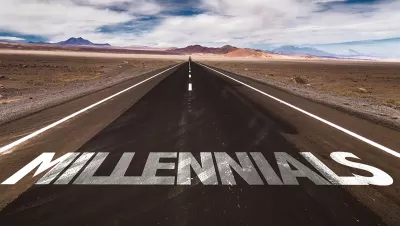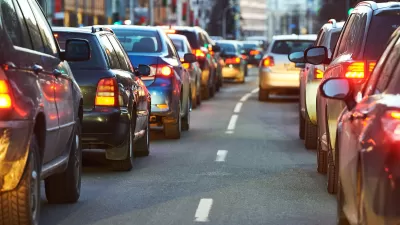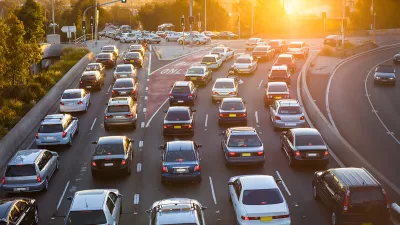According to an analysis of U.S. National Travel Surveys, the Millennial preference for non-automotive travel is mostly hype. Millennials show behavior similar to other age groups and respond to the economy.

Evelyn Blumenberg and Brian D. Taylor have heard the dominant narrative about the travel preferences of Millennials:
Among the many traits thought to make millennials unique is their travel. They drive less, ride public transit and bicycles more, and have a stronger desire to live in walkable urban communities. Or so the story goes.
But what if that story is wrong? Blumenberg and Taylor wondered the same thing and dug into the data for answers, examining data from the U.S. National Travel Surveys for 1990, 2001, and 2009, regarding "range of information on travel over time, detailed personal and household characteristics, and spatial information…" Their findings do indeed tell a different story:
In a nutshell, we found little evidence of a substantial cultural turn by millennials away from cars and suburbs. We found some evidence of generation-specific declines in driving among millennials, but the effects were modest. So what did have the biggest effect on millennial travel? The economy. Most of the drop in driving was likely due to the effects of the Great Recession.
To further elucidate the truth about Millennial mobility choices, the duo set out to answer eight questions, detailed further in the source article.
For more recent news on generational travel trends, see also a Planetizen post sharing the news about increasing vehicle miles traveled among young, low-income Americans.
FULL STORY: Millennial Travel: Who Knows About Kids These Days?

Montreal Mall to Become 6,000 Housing Units
Place Versailles will be transformed into a mixed-use complex over the next 25 years.

Planetizen Federal Action Tracker
A weekly monitor of how Trump’s orders and actions are impacting planners and planning in America.

DARTSpace Platform Streamlines Dallas TOD Application Process
The Dallas transit agency hopes a shorter permitting timeline will boost transit-oriented development around rail stations.

Chicago Judge Orders Thousands of Accessible Ped Signals
Only 3% of the city's crossing signals are currently accessible to blind pedestrians.

Philadelphia Swaps Car Lanes for Bikeways in Unanimous Vote
The project will transform one of the handful of streets responsible for 80% of the city’s major crashes.

Interactive Map Reveals America's “Shade Deserts”
Launched by UCLA and American Forests to combat heat-related deaths, the tool maps the shade infrastructure for over 360 U.S. cities.
Urban Design for Planners 1: Software Tools
This six-course series explores essential urban design concepts using open source software and equips planners with the tools they need to participate fully in the urban design process.
Planning for Universal Design
Learn the tools for implementing Universal Design in planning regulations.
City of Mt Shasta
City of Camden Redevelopment Agency
City of Astoria
Transportation Research & Education Center (TREC) at Portland State University
US High Speed Rail Association
City of Camden Redevelopment Agency
Municipality of Princeton (NJ)





























